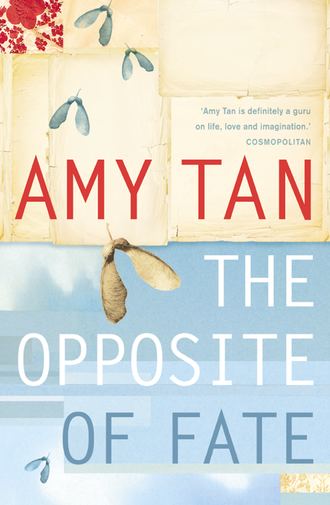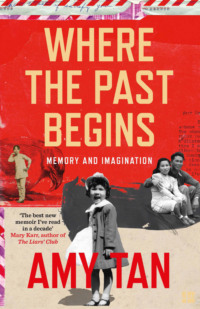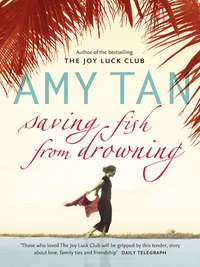
Полная версия
The Opposite of Fate
What news?
“Pete’s dead. Two guys broke into his place last night and killed him.”
“That is the worst joke I’ve ever heard,” I responded angrily. But later Lou and I learned that, indeed, two men had entered through the bathroom window; according to a witness’s report, they did not resemble our thugs from Danville. These men had used Pete’s .22 to bash him over the head, then hogtied him stomach down, the rope lashed around his neck and ankles so that the soles of his feet faced the back of his head. When he could no longer hold his muscles taut, he let go and slowly strangled.
In one imagined version—I’ve played them a thousand times—the robbers stand and watch as Pete struggles to stay alive. That’s the worst. In another version, they leave him while he is still struggling. The police arrive, but seconds too late. Actually, that is the worst. They are all the worst. As to what happened after Pete was tied up, I have only these facts: The two men ran out of Pete’s studio with his gun and went to pound on the door of the apartment manager, demanding to be let in. When the manager refused, they blasted the door with bullets, then ran out of the building toward their car. A man on the sidewalk had the misfortune of being there; they shot and killed him on the spot. A newspaper story identified the man on the sidewalk as a business student from India who attended Armstrong College. I don’t remember his name, and I regret that, for no one killed in that manner should be nameless and forgotten.
I’ve often thought of that young man from India, and of his family, who must think of his death, as I do, every anniversary of that February night in 1976. “Today,” I imagine them saying, “our son would have been fifty years old. Can you imagine? That’s older than we were when he died.”
The next day, Lou and I went to the Oakland Police Department to identify Pete on behalf of his family in Wisconsin. The police showed us only photographs, but what I saw is too obscene to relay in words. Since then, whenever I read stories of wars, or earthquakes, or murders, I have imagined those who have seen what I have, the face of a loved one, not in peaceful slumber as morticians might have devised, but as it appeared at the moment of death, a body unwashed, ungroomed, not prepared, in any conceivable way, to be viewed by another human being, let alone someone who loved that person.
After collecting the Saint Christopher’s medal that Pete always wore around his neck, we drove to his apartment to assist detectives in identifying what might have been taken. I remember seeing everything as in a TV documentary filmed in close-up, with no possibility of pulling away: the door, dusted for fingerprints, and the yellow tape; the opening of the door and my recoiling at the smell. It was the pungent scent of fear, a wild-animal smell of nervous sweat, and it was as potent as if Pete and his assailants had still been in the room, the torment happening in front of me. To the right was further evidence of who had been there, the powdery impressions of fingertips and palms on the doorjamb. Littering the floor were used tissues: so the cold had not been a ruse at all. On the table were the remnants of a dinner—a can of stew (what a poor last meal!)—and a bottle of NyQuil, half empty. Had he been too lethargic to hear the robbers breaking the bathroom window? Was he slow to react? Did he think it was Lou and I who were trying to get back in, looking for a place to stay after a night of birthday-partying? Why didn’t he use his gun?
Also on the table was a letter he had written to a friend. I read the page facing up. In it, he described a dream he had had, similar to the one he had recounted the week before: He found himself enmeshed in wads of thick cotton. Soon it became as light as cotton candy, and when he broke free, he saw his wife and others, people whom he did not recognize but who seemed warmly familiar. It was a good dream, the letter said. It felt like a premonition. So that was the second dream. At last, Pete was reconciled with his wife.
When I turned to the left, I saw the rappelling ropes that had been used to strangle him, the bed with a large bloodstain from the blow to his head.
Lou and I listed what had been taken: a stereo; a small television set; a $600 Hewlett-Packard calculator, the prize of any bioengineering student; and a .22 automatic. I wondered whether a birthday present for me must also have been stolen. We were good friends, after all, and so of course he would have bought me something. But whatever it might have been, it was not there, and it pained me that I would never know.
When we returned to Danville that night, we held a wake with a small group of friends. We sat on the floor, on the gold shag carpet, and because we could not talk, we drank. I downed a lot of vodka to block out the images of death, the odor of fear. Soon I vomited, and when my mind became clearer, I heard Pete’s voice. By that I mean that it sounded as if he were speaking out loud. It was no doubt grief preying on my imagination, drunken thinking taking voice. Yet I could not help relaying aloud what I had just heard: “The names of the guys who killed him are Ronald and John.” My friends stared at me. “Pete just told me,” I said. Cracked, their looks implied. She’s really cracked.
Four days later, two men were apprehended in a robbery in Oakland. In the backseat of their car were items that had been taken from Pete’s apartment, including the calculator that he had purchased on my credit card. The serial number on the receipt matched the one on the calculator. The police told us the names of the men in their custody: Ronald and John.
Lou and I were stunned to hear the names I had blurted the night before. The police guessed that the two had targeted Pete after watching him move into the apartment; robberies often occur around the time of such transitions, they said, as criminals size up victim and possessions. Other than that, the choice of Pete as victim was random, a bit of bad luck. Both men had long arrest records, for robbery, and assault and battery, and they had a nasty penchant for tying up people and beating them. The fingerprints taken at Pete’s apartment, however, matched only one of the men arrested. Because of what I had heard or imagined Pete saying, I was certain both men had been in the room. The police were too, but for another, more earthbound reason: A neighbor had heard two men’s voices in the hall just before they fired through his door. In the end, only one of the men, John, was charged with Pete’s murder.
The police said that I would be called as a witness, because I was the owner of the credit card. They cautioned me that I would have to take the witness stand during the preliminary hearing and the trial itself, and I would be required to look at the morgue photos and once again identify the body. I was sickened even to think of the prospect.
The night before the preliminary hearing, I had a fantastical dream, the first of a series that would occur nightly until Pete’s murderer was convicted several months later. The dreams may have been delusional, the result of emotional trauma at having seen the gruesome evidence of a friend’s death. Yet even if that is the case, it does not diminish the importance of those dreams to me or what I learned and did as a consequence. While I have always been a prolific dreamer, one who remembers up to a dozen dreams a night, I have never had dreams quite like these before or since. For one thing, these dreams followed a singular convention: I was always aware that Pete was dead and that I was alive, and that where we were meeting was the consciousness called dreams. In addition, each dream consisted of lessons in the form of metaphors that were obvious in their meanings.
In the first dream, I arrived at the place where Pete was now staying. It was—as dreams go—a surreal land with glorious green mountains, flowering meadows, and canyons flowing with waterfalls. Elephants, mastodons, and people flew about, as though a circus had been cast into a gravity-free environment. Only Pete and I were on solid ground.
“Hey,” he said, “let’s go flying.”
“I’m not dead,” I reminded him. “I can’t fly.”
“Oh, right. Well, see over there, that lady at the stand? She can rent you some wings.”
He took off, and I turned toward the stand he had mentioned and duly procured a set of plastic wings for the bargain price of a quarter. I slipped them on, walked to the edge of a cliff, and took off soaring, but uncertain as to what I should do next. With the wings I was weightless and could move toward whatever I wished to see. All at once, I had a disturbing thought: How can a pair of cheap wings enable me to fly?
The next instant I was plummeting, the weight of my body pushing down, the wind pressing up, and I knew that soon I would be smashed to pieces. How could this be? Hadn’t I been flying a moment ago? In the next instant, I was aloft once more, weightless. Relieved but still puzzled, I wondered again how I could be flying with wings that cost only a quarter—and abruptly, I was falling again. But I was flying a second ago, I said to myself. And immediately, I was aloft … At the instant I realized the meaning of the dream, Pete spoke: “And now you see, it’s your belief in yourself that enables you to do what you wish.” With that, the dream ended.
The next night, a monster was set on me and I began to run. This was the boogieman I had known since childhood. I ran up a long stairwell, I ran through the dark streets. All the while, Pete was urging me to stop and turn around and look at what was chasing me.
“I can’t,” I cried. “If he touches me, I’ll die.”
“Turn around,” Pete said firmly.
Finally I did. Before me was a monster, as I had expected, and yes, he was hideous in every respect: a huge, scaly creature with a venomous look. But he was also surprised that I stood there examining him. After a few seconds he started to shrink, and then he disappeared.
“You see,” Pete said, “it’s your own fears that give them the power to chase you.”
And so the dreams went each night, a visceral truth played out to heights of drama. I learned to make money come pouring out of pay phones that had been broken and never connected me to those I was trying to reach. I learned to fly down stairs in huge leaps, rather than being paralyzed with leaden legs and attempting only one small step at a time. I discovered that if I did not like what was before me, I had only to look at my shoes, then look up and walk ahead toward a fresher, more pleasant scene. During this time, my life changed—or rather, I changed my life, in ways I would previously have thought inconceivable. For one thing, I decided to quit my doctoral program.
This drastic decision was clearly born when the idealism of my twenties collided with the shock of tragedy. A valuable life had been lost, and to make up for it, I had to find value in mine. That was the gist of the feeling. The doctorate, I decided, would be a worthless appendage. Besides, there were no jobs in linguistics, and even if there were, how was I bettering the world by teaching others to examine the intricacies of dead languages and the like?
To leave academia was a terrifying idea, however. It meant abandoning the dream my parents had nurtured in me since the age of six, that I would become a doctor of some sort. Within that doctorate were all the embellishments of my ego, my sense of worth, my place in the world, and hence all my worries as well, the fear that I would never be good enough, that I would forever be struggling to hide that I was a fraud, doomed one day to fail and reveal how inadequate I truly was. But if I left the doctoral program, what could I do instead? What could I do that was worth anything to anyone, including myself? I could see nothing.
I remembered that Pete had once suggested that I apply my linguistics knowledge toward working with disabled children. He had said this a month or so before he died. He himself had intended to make computerized equipment for people with disabilities. At the time, his suggestion held no appeal for me. I was not particularly fond of children, except as objects of research, and I knew nothing about disabilities.
But once I quit my doctoral program, I found a job listing for exactly what he had in mind: a language development specialist for a county program serving children, newborns to five years old, who had developmental disabilities. At the interview, it was as apparent to the administrator as it was to me that I was both overqualified and specifically unqualified for this job. When the interview ended and I stood to leave, I heard Pete telling me that I should simply tell this woman my motivations in applying for a job with exactly these challenges and unknowns. And out came my story of Pete’s death and my pledge to do with my life what he had intended to do with his. Ten minutes later, I was hired.
It was my job to observe the children, informally assess their communication skills, and then work with parents and teachers to devise a plan and help them carry it out.
I remember the first talk on language development I gave for the parents. I mustered all my knowledge, prepared a detailed examination of the steps and processes entailed in language acquisition, and delivered an impressive one-hour lecture to a dozen parents, many of whom had just been told their babies had Down’s syndrome, cerebral palsy, autism, or some rare congenital disorder that would lead to an early death. At the end of my talk, a mother came up to me and said, “You are so smart.” I never felt more stupid. You just have to learn how to learn, I heard Pete say.
After that, I would listen to parents as they discussed their hopes for their children, and then together we would cry before we set out to find new hopes. With the kids themselves, I learned to play, to discover what made them laugh, what they could not resist watching or touching or reaching for. I found myself observing not deficits but the qualities of souls. Over the next five years, I had opportunities to work with more than a thousand families, and from them I sensed the limitlessness of hope within the limits of human beings. I learned to have compassion. It was the best training I could have had for becoming a writer.
Of course, not everything about me had changed for the better. I still worried incessantly about every detail of my life, twisting the permutations of these anxieties into knots. I remember one day, some six months after Pete died, when I was fretting over money, or rather, our profound lack of it. I was driving across the Bay Bridge in our rickety VW bus, coming home from my job, which netted me barely enough for rent, utilities, and food. Lou was in law school, and what little he earned went toward his tuition and books. But now we had a crisis: Our recently adopted cat, Sagwa, had gone into her first throes of heat the night before, and in searching for her Romeo, she jumped out of our fourth-story apartment window. Luckily, she lived, but fixing the resulting broken leg was going to cost us $383. How would we pay for it? We couldn’t save that amount in a year. Why the hell did we get the damn cat?
I heard Pete say: “Come on, it was an accident. You worry about things over which you have no control.” By then, I had heard his counseling voice many times. In the weeks right after his death, I had believed he was speaking to me across the divide. But now, with the natural waning of grief and shock, I had returned to thinking it was merely my imagination conjuring what he might have said.
“Easy for you to say,” I responded. “You’re dead. I have real bills.”
I heard him laughing. “These things happen by themselves. They’ll take care of themselves.”
I was about to banter back when I felt something slam the side of the bus, and send me swerving across a lane of traffic on the bridge. I fought to regain control, finally pulled over, and got out of the car with shaky legs. A man rushed up to me.
“Are you all right? I’m so sorry. I don’t know what happened. Thank God you’re not hurt.”
We went around to the side of the VW that he had rammed. At first I could see no sign of damage, but when we bent down and looked at the panel that curved under the bus, we saw it: a long gash, barely noticeable in a vehicle riddled with dings and oxidized paint.
“Get some estimates,” the man told me. “Send them to my insurance company and they’ll pay.”
“It’s not worth it,” I said. “Even though it’s not my fault, this will be reported to my insurance company and my rates will go up.”
“I see what you mean,” he answered. “Well then, just get one estimate and send it directly to me. Here’s my card. I’m the vice-president of this corporation. I’ll send a check to you directly.”
Fair enough. I drove to the first body shop off the ramp. Ten minutes later, I heard Pete laughing as I stared at the written total for the estimate: $383.
I will relate only one more dream. It was the last.
On Lou’s birthday that year, the trial ended, with a conviction on two counts. First-degree robbery. First-degree murder. That night, I dreamt that I met Pete in a garage, a rather prosaic location for a farewell meeting. He told me this was the last dream, now that the trial was over. I protested, “These are my dreams. I get to decide when they end.” Pete ignored what I said, and went on: “You’re going to meet my friend Rose—”
“Rose!” I sneered. “Fat chance. She hates me.” When I had called her months before to tell her Pete was dead, she had been curt almost to the point of rudeness. Then again, I had been the same with the messenger who delivered the news to me.
“Rose is going to become very important to you,” Pete said. “She’s a writer, and she’ll be helpful to you when you become a writer.”
“Who said I was going to be a writer?”
“That’s all I wanted to say,” Pete told me, and then, as if going down to the corner store, he left me there.
After that, I still had dreams about him, but they were different, nothing at all like the dream-lessons. The new dreams conveyed the full horror of his death, for in them he was not dead, as I had feared, but alive, as I had hoped. Having survived near-strangling, he was brain-damaged, confused and suspicious, preferring to live as a beer-drinking recluse, unsure of who he was and uninterested in finding out.
Each year for seven years, on the anniversary of Pete’s death, I lost my voice. It must have been a psychogenic gesture for the horror I could not talk about. And yes, eventually, Rose and I did connect with each other, tentatively at first, through brief letters, and then in lengthy missives, both of us grasping to understand the transcendental experiences we have had since his death.
If you’ve followed this story so far, you have already understood that Rose is indeed a writer, and that she was the first person to encourage me to write fiction, suggesting what I might read for inspiration and to which little magazines I might send my first attempts.
Enough time has passed that I can now more reasonably assess that period after Pete died. I have considered that those dreams were the subconscious by-product of trauma and grief, or the delusional thinking that enables a person to cope with horror. The metaphors were ones I have had all along, and through the need to survive, I brought out their meanings. Whatever they sprang from, the dreams were a lot more cost-effective than psychoanalysis. As to the counseling voice of Pete, guiding me toward the job with children, that was my own, pushed by fear of failure to the point that I made myself finally hear it. The coincidence of the $383? Well, that’s odd, and hard to explain, except to say that when you are looking for coincidences, you will surely notice them. There are rational answers for everything. Sometimes I think about what they might be.
And yet no matter what these dreams and coincidences were, everything that happened during those months from my birthday to Lou’s had a wondrous effect on me, on the shape of my life. It pushed me, enlarged my outlook, and sent me searching for what I should believe in. Does it matter what the origins were?
Today I am neither a believer nor a skeptic. I am a puzzler. I still puzzle over what Pete’s story presents: what I fear, what I dream, what I believe. I ask myself: What’s real? What’s important? What do I gain in believing one reality over another? What do I lose? And if we understand the mysteries of the universe, if they end up being explained entirely by mathematics, as Pete said they could be, will they still bless us with the same amazing joy?
FAITH
These are remarks I gave at the memorial of my editor, the late, great Faith Sale, who died on December 7, 1999.
The first time I talked to Faith on the phone, I was a publishing neophyte. I didn’t know what serial rights were. I thought Faith’s remark about “interest from the clubs” meant that places like Club Med might stock The Joy Luck Club in their beachfront stores. The year was 1988, and after talking about the book I was finishing and other literary concerns, I told Faith I was interested in attending a national book convention with a friend who had invited me. Faith immediately cut me off: “Oh, no! You shouldn’t get caught up in all those publishing parties. They’ll ruin you as a writer.” Parties? I didn’t know that book conventions held parties. Frankly, I was interested in going because my friend said I could score a lot of free books.
It wasn’t until after I got to know Faith well that I realized how ironic it was that she warned me away from parties. Faith was, after all, the ultimate publishing party girl. And those who knew her well also know that I can say this without detracting whatsoever from her reputation as a serious and hardworking literary editor. In later years, whenever I went to the American Booksellers Association convention with Faith, it took us two hours to go from one hall to the next. She knew everybody, had to talk to everybody, and I felt like the recalcitrant kid impatient to make her way to the amusement rides. She was late to almost everything as a result, late even to her own passing from a disease that commonly took people much earlier. And thank God for that. Thank God for her stubbornness, for her need to control every last detail before she could let go.
If Faith had stayed with us longer, I think she would have been seduced one way or the other by the Internet, as had been my plot. I know she touched her fingers to the keyboard at least a few times, once to send me an e-mail, other times to play solitaire and Freecell. And had she dabbled further, I think she would have discovered eBay, the great cyber bargain basement. We shared that—the art of the cheap deal. We used to go around the corner from her apartment on West Eleventh Street to an outlet called SubPrice, where we could buy stretch-velvet tops and leggings for five bucks.
That love of a bargain was still very much in evidence the day before her final operation. I was telling her that I, a New York carpetbagger, was going to hold a fund-raiser in my SoHo loft for a certain political candidate, about whom Faith held, shall we say, ambivalent feelings. The fund-raiser would probably take place in March, some four months away. “Do you want to come?” I asked, and I tried to sound casual. In hearing her answer, I figured I could gauge how she felt about the upcoming surgery and her chances of surviving it. Faith immediately said, “Of course. But I’m not going to pay.”
In Faith, I had not only an editor and a cohort in bargain shopping but a mentor and a friend, someone who knew my best intentions and intuitions as a writer and how these fit in with the rest of my life. She knew all the details of what I did, whom I saw, what happened on my vacation, what my mother said, what she didn’t say. Faith also called me during the last hour that my mother was alive.
Whenever I gave Faith something to read, she’d ask me what I wanted from her as an editor. “Keep me from embarrassing myself in public,” was my usual answer. And she did keep me from exposing the glitches in my prose, but she also prodded me to go deeper, to be more generous in the story I had to tell, to not hold back, to show what was most important in my life and on the page. She had an unerring sense of what mattered—to me. She could help me find it, though there were many ways in which we differed in taste and opinions. Olives, for example. She could not abide any dish littered with canned olives, a favorite of mine. And music—who would want to assault his or her ears with anything less than classical music or Broadway musicals or the rocker Michael Parrish, her son-in-law? Then there was the matter of ghosts. I was raised with them. She was not. But here Faith was diplomatic. She indulged me. She listened with genuine interest when I told her about unseen visitors whistling in my kitchen, about the TV’s turning on by itself, about my version of ghostwriters, who, by the way, also provide research and editing on request. She was not going to argue scientific logic with me, since, delusion or not, ancestral spirits and reincarnation increased my material multifold. And for my part, I liked to remind Faith now and then that she, oh esteemed one, had after all served as editor for George Anderson, the world-famous talk-show host to the dead. And more than once I recalled for her benefit the time my mother had written her a note thanking her for “the book” and for helping her feel closer to “the other side.” Faith was quite touched; she thought that my mother was referring to The Joy Luck Club and that her own help in publishing it had brought my mother fond memories of her family. I had to break the news to Faith that my mother was talking about George Anderson’s book We Don’t Die. I’m not done tormenting Faith about this. I plan to have regular seances with her in which we discuss how and why she was wrong in her opinion about an afterlife.






